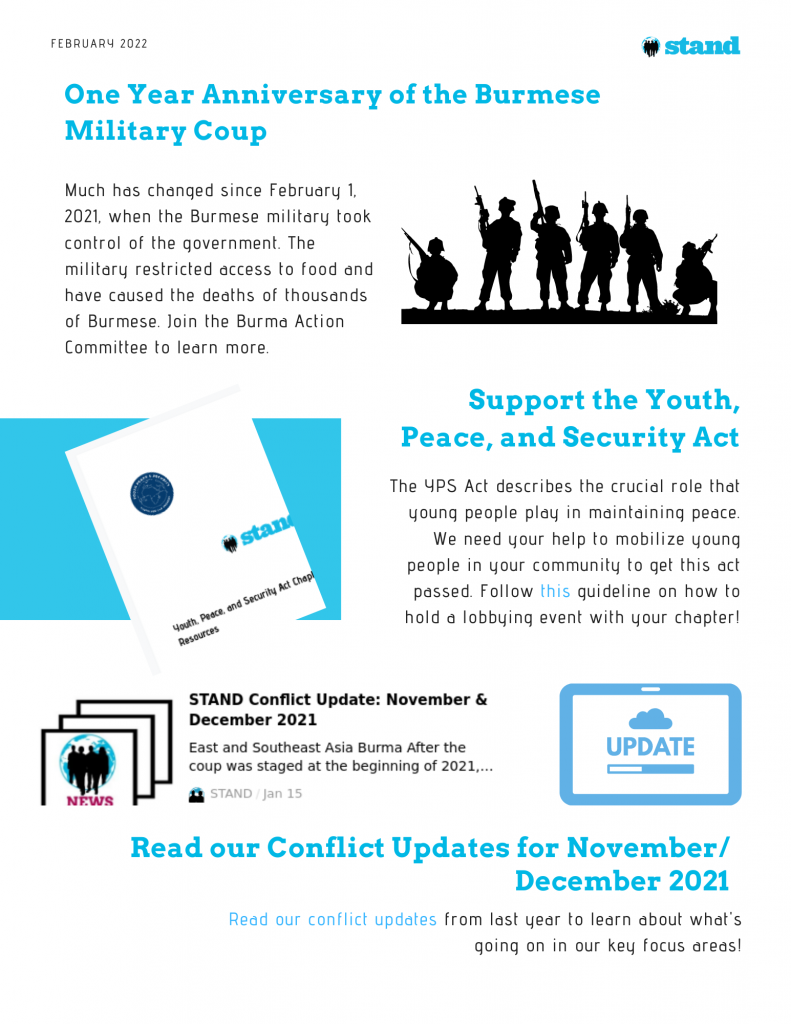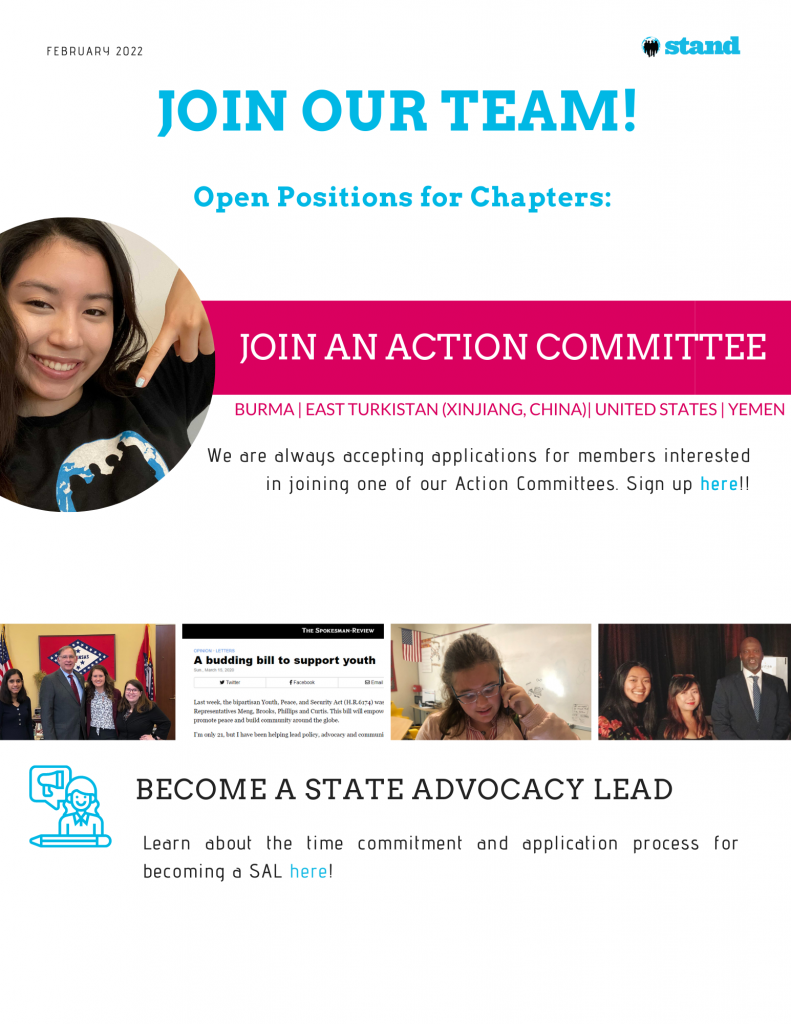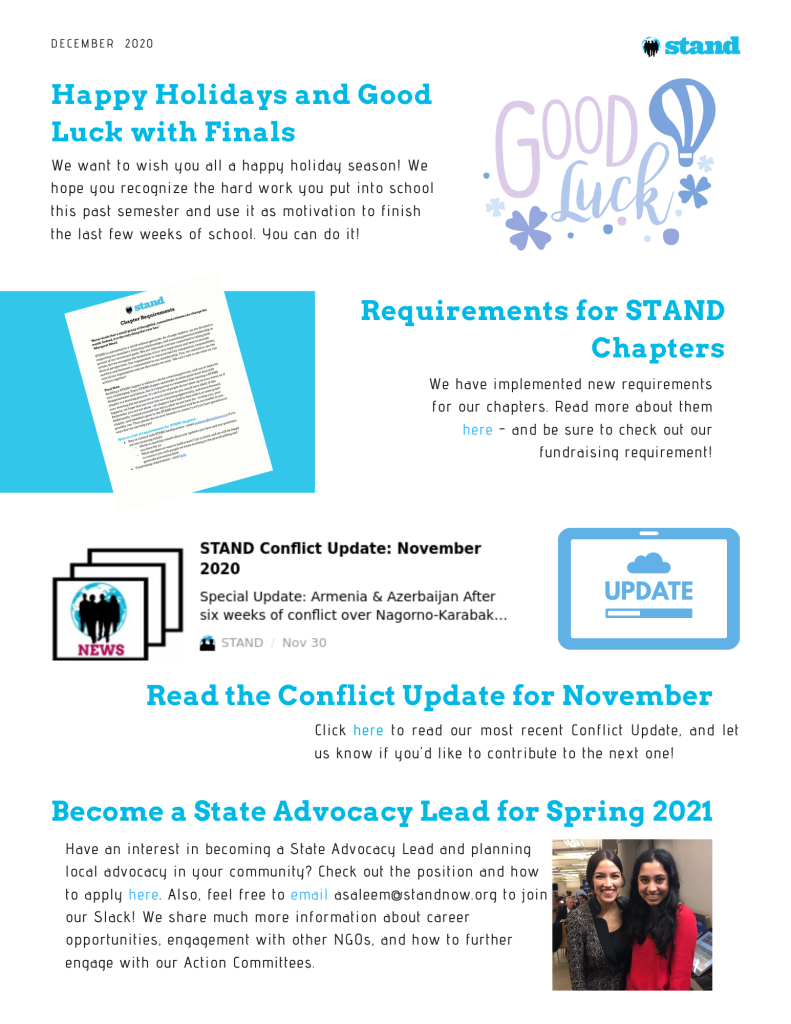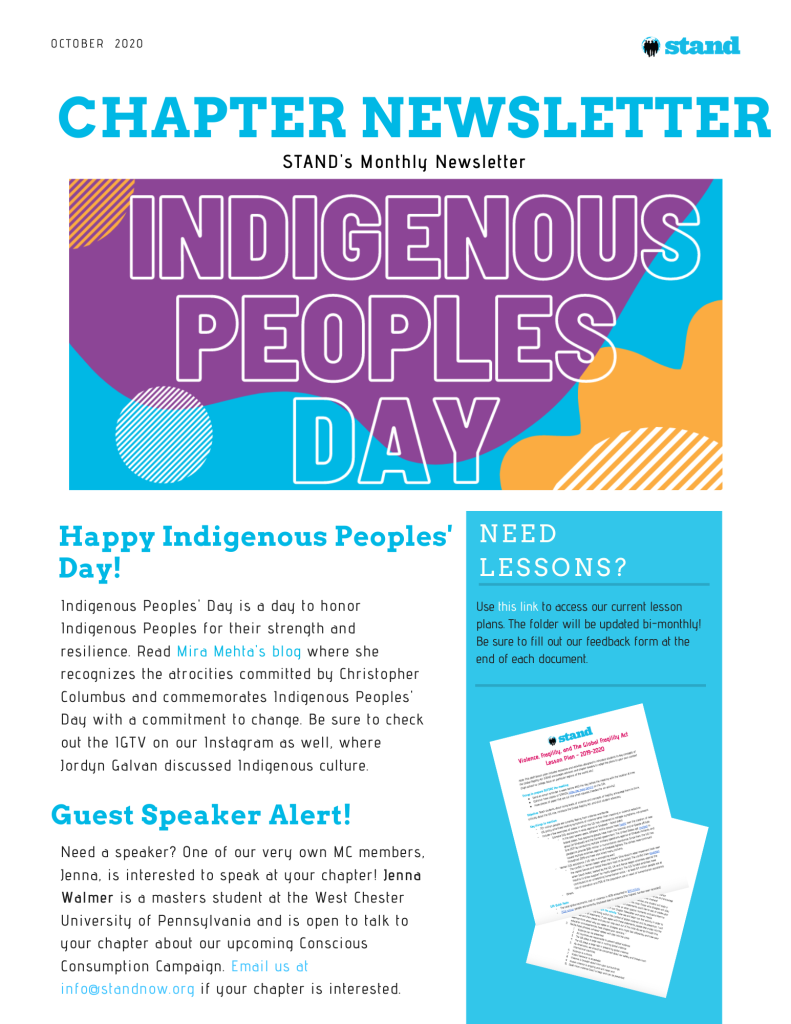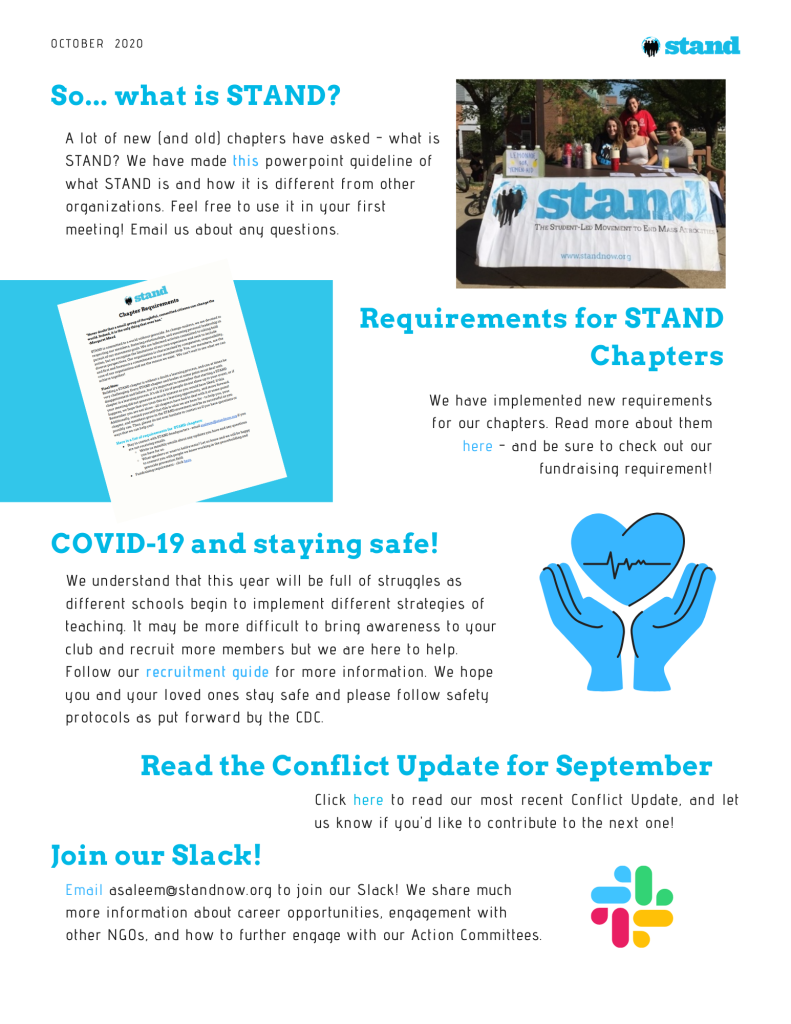The 2023-2024 Managing Committee is grateful for our whole STANDfam and want to wish all of our graduates well as they move onto new journeys. We want to say a proper farewell to our two graduating MC members, Anne-Sophie and Jerry!
Anne-Sophie Hellman (co-US Action Committee Lead, Genocide Education Lead), Buffalo State University

Anne-Sophie, it has been so wonderful to have you on the team this year! You are such a kind, thoughtful, and intelligent person, and that is clear in everything you do — I know I can always count on you to give honest feedback when we have a discussion and the Zoom call would go silent otherwise. I have learned so much from you and love getting to hear about all the interesting things you are doing at Buffalo State. I’m going to miss you next year but am so excited to see what comes next for you. Congratulations!! – Mira
Anne-Sophie, I’m so incredibly grateful to have had you as my co-lead for the USAC this year! Working with you has been such a pleasure, and I wouldn’t have rather done it with anyone else. From the beginning, I have always taken notice of how organized you are. You have always been on top of everything, continuing to be one step ahead when it comes to prioritizing any task. Any person who gets to work with you is automatically so lucky, as they will be able to experience how kind, funny, experienced, and hardworking you are right off the bat. I’m going to miss having planning meetings with you and coordinating tasks together, but I’m excited to see where the future takes you. Many many congratulations to you!! Wishing you the best :)) – Anika
Anne-Sophie, it has been incredible getting to work alongside you this year. I admire your compassion, intelligence, and dedication to making the world a better place. You are so knowledgeable about a wide range of topics, and all of the insight you provided on our MC calls opened the door for many important conversations. I feel beyond lucky that we got to work together on the Genocide Education Campaign, and I couldn’t have asked for a better teammate. My favorite memory was our lobbying call together (I still think it’s a STAND record for shortest one!!!), and getting the chance to chat for over an hour after the call ended. I’m so glad that I met you through STAND, and I know that this is just the beginning of your amazing journey. Congratulations on EVERYTHING, and know that I am so proud of you! – Claire
Anne-Sophie, thank you so much for all your dedication to STAND this year as our US AC Co-Lead and our State-Level Genocide Education Co-Lead! I have thoroughly enjoyed getting to know you and work with you. I am so proud of all your accomplishments, from STAND and our Genocide Education Campaign, to being a history major at Buffalo State University, to your work with the Anne Frank Project. I sincerely appreciate how on top of it you are with campaign planning and making sure the tasks for your roles are completed to the best of your abilities, as it made our lives so much easier! I have learned so much from you, and I could not have asked for a better partner. I know that you are going to go on to do some amazing things, and I will certainly be here to cheer you on. I am so proud of you, and I truly wish you the best with your future endeavors. Congratulations on your graduation! I will miss you, but I know that we will have the opportunity to work together again in the future! – Allison
Jerry Harris (co-Education Lead), George Mason University
Jerry, thank you so much for everything you have dedicated to STAND over the years! We literally would not have been able to do it without you. I especially appreciate you taking the initiative on conflict updates. I know it is always really hard to find writers, so I appreciate you and Grace working to make sure they get written on time. I have loved working with you and getting to know you for the past two years. Based on your checkins, I know that you have been doing some amazing things at George Mason, and I have no doubt that you will continue to do great things in the future. Congratulations on graduating, and I will miss you! – Allison
Jerry, you are one of the most genuine and sweetest people I have ever met. You are dedicated to STAND and you are always there for the MC members. There have been many times where you were the only one to show up at my meetings, and I am genuinely so thankful for that. You will continue to do amazing things, and I am so proud of you. Congratulations!! Celebrate yourself to the fullest ❤️ – Alishba
Grace: Jerry, you have been the best education co-lead I could have asked for! Every month without fail you’re writing great pieces, making vital edits, and keeping our little team running. Genuinely, I could not have done it without you! Also, your work at George Mason is always so interesting to hear about and I can’t wait to see what you’ll do next. Okayyy grad school slay! I just know you’re going out into the world to do great things. Your positive outlook and total dedication has always inspired me over the years I’ve known you! You always have a kind word to say and a fun story to share! I’ve really enjoyed getting to know you over these last few years and I’m glad to call you my co-lead and friend  – Grace
– Grace
I could have not asked for a better lobbying partner and overall teammate! You have been so amazing throughout my time here. Your passion for education and atrocity prevention is so apparent and I am so blessed to have worked with you. It’s been a difficult year and you and Grace and have worked so incredibly hard and I’m so thankful for your leadership. You’ve been incredibly reliable and you’re one of the reasons why you made it all worth it. I’m so glad that we were teammates on the MC at the same time and I’m looking forward to all the amazing work you do in the future! Congratulations, good luck, and thank you for it all! – Seng Hkawn



